#Dooku being a former Jedi isn't a plot point meant to narratively criticise of the Order... it's meant to hint at Anakin's downfall.
Text
Dooku didn't leave because of the Jedi.
At least, if you're going by George Lucas' word.
In deleted scenes of Attack of the Clones, when we learn about Dooku's departure and his values, there's no mention of the Jedi or "the Jedi Order as an institution".
And every time Lucas refers to Dooku's disenchantment and reason for falling, he doesn't mention the Jedi.
"When you realize that Dooku is Darth Tyranus, it explains what Darth Sidious did after Darth Maul was killed: he seduced a Jedi who had become disenchanted with the Republic. He preyed on that disenchantment and converted him to the dark side, which is also a setup for what happens with Anakin."
- Mythmaking: Behind the Scenes of Attack of the Clones, 2002
"[Dooku is] one of the few Jedi who became disenchanted with the Republic and left the order and he is leading a separatist movement."
- Vanity Fair, 2002
"I wanted a more sophisticated kind of villain. Dooku’s disenchantment with the corruption in the Empire is actually valid. It’s all valid. So, Chris plays it as, 'Is he really a villain or is he just someone who is disenchanted and trying to make things right?'"
- Starlog Magazine #300, 2002
He probably meant the Republic/Senate in that last one, but you get the point. And you're seeing the pattern, right?
Dooku's problem isn't the Jedi, it's the Republic.
He's become disenchanted with a system that - according to Lucas' prologue in the 2004 book Shatterpoint - worked for 1,000 years...
"For a thousand years, the Old Republic prospered and grew under the wise rule of the Senate and the protection of the venerable Jedi Knights."
... but has been rendered ineffective because of 1) senators becoming corrupt and 2) corporations gaining political power.
"But as often happens when wealth and power grow beyond all reasonable proportion, an evil fueled by greed arose. The massive organs of commerce mushroomed in power, the Senate became corrupt, and an ambitious named Palpatine was voted Supreme Chancellor."
That's the message Dooku runs on, when he rallies the systems to form the Separatist Alliance.
"By promising an alternative to the corruption and greed that was rotting the Republic from within, Dooku was able to persuade thousands of star systems to secede from the Republic."
The Jedi aren't really a factor in his decision to leave.
Why would they be? Their political status isn't very high, they're virtually powerless, as illustrated by the film's narrative and stated repeatedly by Lucas.
On the contrary, as we already established in this post, Lucas full-on confirmed that Dooku actually carries the sympathies of most of the Jedi. Again:
Most Jedi agree with Dooku, ideologically.
As far as the Jedi are concerned, the politicians are effing up the Republic, and it sucks because the Jedi see this but aren't allowed to interfere in the political process. They have to resort to looking for loopholes in their mandates to actually get stuff done.
That's what that whole "she's a politician" scene is meant to hint at. In the commentary of Attack of the Clones, Lucas uses a similar turn of phrase as he does with Dooku.
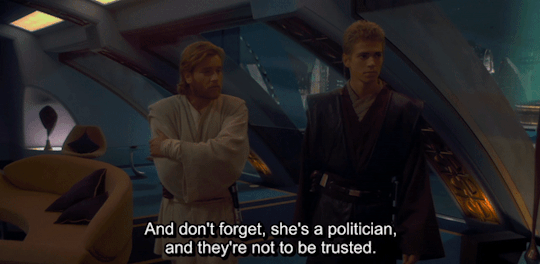
"[This scene gives us] a chance to talk a little bit about politics and the Jedi’s disenchantment with the political process, due to the corruption and the ineffectiveness of the Senate."
- Attack of the Clones, Director’s Commentary, 2002
Considering all this, it becomes clear that the intended narrative surrounding Dooku's decision to leave the Order is not:
"The Jedi are dogmatic and asleep at the wheel except for Dooku, who is ahead of the curb and sees the system is flawed, so he left."
It's actually:
"ALL Jedi see the system is flawed, Dooku's the only Jedi who decided to take it a step further and leave the Order so he can try to get into politics himself and change things."
That's why they hesitate to accuse him of murder.
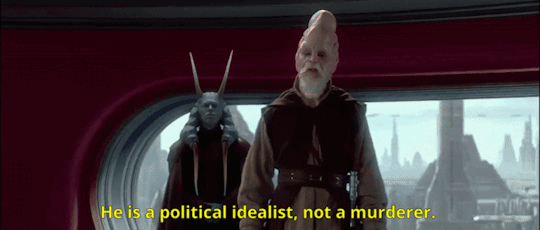
That's why in an earlier draft of the Attack of the Clones script, by the end of the second act, Mace STILL has his doubts that Dooku would sign a treaty with the Trade Federation to attack the Republic.

As far as the Jedi are concerned, Dooku is out there fighting the good fight, making noise because whenever they try to protest it falls on deaf ears... until his betrayal on Geonosis.
After all, let's not get it twisted: the Dooku we're introduced to in the films and The Clone Wars, isn't really just Dooku anymore.
He's Darth Tyranus.
A point Lucas makes sure to highlight in his Shatterpoint prologue:
"Unbeknownst to most of his followers, Dooku was himself a Dark Lord of the Sith, acting in collusion with his master, Darth Sidious, who, over the years, had struck an unholy alliance with the greater forces of commerce and their private droid armies."
It's not about doing the selfless thing for Dooku, anymore. He's knowingly part of the problem.
He's all about ambition, now. His personal goals are things like overthrowing Sidious and becoming the most powerful Jedi.
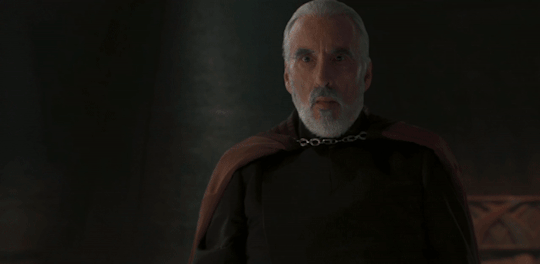
"[Anakin's] ambition and his dialogue here is the same as Dooku’s. He says “I will become more powerful than every Jedi.” And you’ll hear later on Dooku will say “I have become more powerful than any Jedi.” [...] It is possible for a Jedi to want to become more powerful, and control things."
- Attack of the Clones, Director’s Commentary, 2002
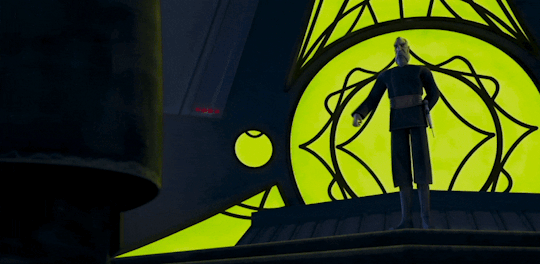
"If you put two Sith together, they try to get others to join them to get rid of the other Sith. [When revealing the truth to Obi-Wan], Dooku's ambition is really to get rid of Darth Sidious. He's trying to get Obi-Wan's assistance in that and help in that, so that he and Obi-Wan could overthrow Sidious and take over."
- Attack of the Clones, Commentary Track 2, 2002
Y'know? Selfish things.
Dooku - like all other Sith, and like the very corporations and Senators he had sworn to destroy - is consumed by his own greed.
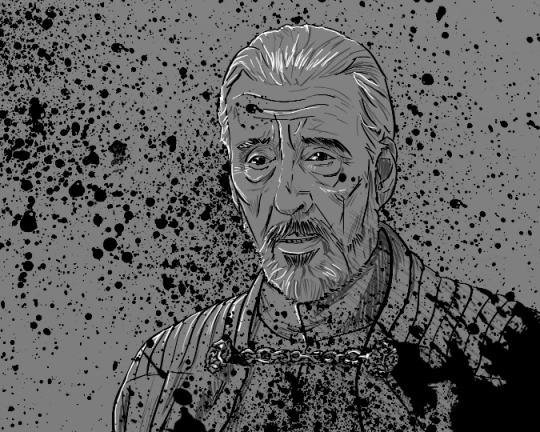
#also functionally-speaking Dooku being a Jedi is done to highlight the ambiguity throughout the investigation on whether or not this is#a scorned ex-Jedi or a straight-up bad guy... you're never sure until the end of AOTC. That and Dooku being a former Jedi shows that#even someone who was once selfless and dutiful can crave power and be selfish#which sets up a precedent for Anakin - who's already struggling with being a selfless Jedi - when HE falls to the Dark Side#Dooku being a former Jedi isn't a plot point meant to narratively criticise of the Order... it's meant to hint at Anakin's downfall.#dooku#george lucas#star wars#attack of the clones#long post#collection of quotes
2K notes
·
View notes